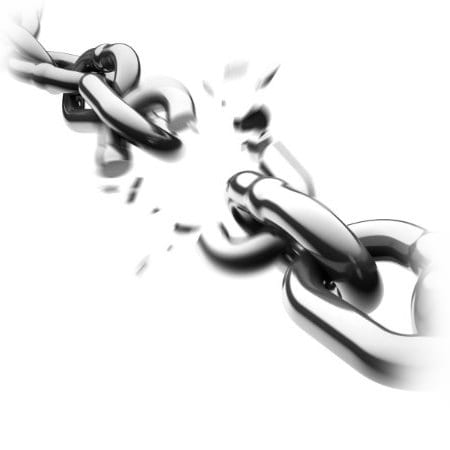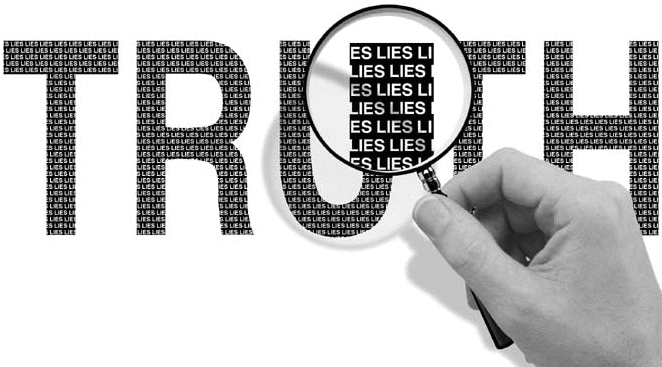Did you ever find it frustrating that despite your best efforts, change is difficult, and sometimes seemingly impossible to obtain? New Year’s resolutions quickly fall short as our true desires and ideals quickly become another pile of unmet self-expectations. So why do we fail? Is it self-discipline that we lack? If we struggle with addiction, should we have the will power to just stop?
For those of us who have walked the roadway of Christ-centered recovery, we fully recognize that had we been left to our own devices, we would be in a hopeless condition. We understand that apart from God we can do nothing. Yet with His resources and our connection to Him, we’ve been equipped with everything necessary to live this life and be victorious. So what’s stopping us if we aren’t there? And how can we truly unlock the mystery of living out the life we desire? Let’s take a closer look!
Where Change Begins
We often think change begins simply because we have a desire for it, and then we can work hard to attain it. But in truth, we can possess the desire for change in relationships, health, image, career, ministry and other areas without any results, leaving us feeling frustrated and seemingly hopeless. Although our desire to change is certainly necessary, striving, trying, and pushing ourselves is not the solution. God declares in His Word that “My grace is sufficient for you, for my power is made perfect in weakness.” (1 Corinthians 12:9). Change is not a result of our human effort; it’s a result of the power of God coming into our lives through the Holy Spirit. This power isn’t activated by us “trying”, but by us acknowledging that we can’t. The first step in the 12 step program basically states “I can’t manage my own life.” At step three, we move to the place of giving God control. It is clear that all other freedom rests through this transaction. This means that God can only be activated when we:
1. First admit that we are incapable of changing
2. We submit to God to do for us what we cannot do for ourselves.
God’s Job in Changing Us
Imagine for a moment if you had a major crisis with your home, such as a natural disaster, that caused devastating damage to your home. As you sifted through the broken rubble, you recognized that the environment needed to be changed. Your home was no longer able to be inhabited in its current condition. So in the day and weeks to come, a contractor was hired to plan all necessary repairs. Since this was no ordinary damage, you recognized you were totally unable to fix the home without outside intervention and equipment. But despite that reality, now, imagine that you were so deeply overcome by fear that the contractor would bring further damage, you opted to take a seat right next him, and control and mandate how he should do his job. You insisted that he do things in your timing and way. You directed him to work in ways that were unsafe and far from the process that he was equipped to perform. Thus, in the midst of large plans to reconstruct, your “intervention” posed a safety hazard and impeded the work from continuing. So as the contractor stepped aside, you took the tools and tried to fix things yourself. It might be no surprise that it didn’t work. Disaster after disaster occurred. The walls and roof crumbled around you, and you had absolutely no skill or ability to overcome and repair. The house could not be fixed, and you were overwhelmed by your position of responsibility to try to do the impossible.
While that may sound extreme, in many ways we bring God into our situations in a like manner. For a season we may “hire Him” to do the job. We are desperate in the moment and plead for His assistance. Yet once He enters into our lives and exposes the things that are broken and in need of “fixing”, we get nervous. We doubt Him and His capabilities. We fear the loss of control over our future. We fear that things will be changed in ways we won’t like. So rather than trust in the engineering and capability of a God who is PERFECTLY able to be make our lives whole, we snatch the role from Him, and put ourselves in charge. And from there, we begin to find that apart from Him, it is impossible!
Creating the Environment for Change
As we recognize that we can’t change ourselves or stop addictive behavior, it’s important to understand that God operates by certain conditions and terms. For example, just as a general contractor must secure an environment that is safe for his workers to implement the construction plans, so our Lord must be given permission to survey, evaluate and implement His own process. This means we will need to enter into a “contract” with Him on His terms, asking Him to change us, with the commitment to be surrendered to Him and His established purposes in the situation. We must let Him bring His blueprints to fruition without trying to intervene.
It’s helpful to understand the general methods of God’s operation, and to understand where we might struggle in the pursuit of allowing God to change us. Let’s look:
God brings the light of truth. When He first enters into our situation, God will reveal the truth of what is occurring. This requires a willingness to confront our lives and circumstances on the basis of what they are, not how we wished or pretended they would be. Sometimes we can be so focused on the wrongs of someone else, that we have been blinded to our unhealthy behaviors. If we are consumed by denial, He will confront us and expose what has been hidden. Denial is a tricky reality because we usually deny to cope with pain. God knows what has occurred and what has prevented us from seeing things as He sees things. This can be very disruptive at first. It would be like having that disaster strike in the evening hours where everything is covered and naked to the eye. Then, as the sun begins to rise, the level of rubbish can be revealed.
God’s revelation is not to harm us. In fact, He can get to work the moment light is shining and we are willing to participate. If we remain in denial (darkness), God can’t work. That’s because He is light. And where He exists, darkness will leave, and truth will be exposed. Therefore, the moment we try to cover, hide or bury what He reveals, He is prevented.
God operates by love. If we ever see God as angry or after some agenda to hurt us, we’ll never have the confidence to fully give our lives to Him. God is tender-hearted and kind. He is compassionate and filled with mercy and grace. He sees the wreckage in and around us and knows that He alone has the remedy to fix what’s broken. However, just because He is that way towards us doesn’t mean that we will perceive Him in that manner. If we harbor a faulty idea of God because of our earthly experience, we will not engage with God properly. Instead of the Contractor of our Soul that can restore us, we’ll be prone to try to get Him to work within our own “blue print” of how we think He should “love” us. Furthermore, if we have a fear-based understanding of God, we by default will protect ourselves from Him rather than invite Him inside.
God operates by holiness.While God is loving, He has a radical agenda in our lives that will not negotiate, approve, or be even remotely tolerant of the sin that hurts us so deeply. Yet He is not oriented towards changing the outwards and giving us a set of lists that we are expected to live up to. Many of us mistook holiness as law-based expectations. In truth, God’s holy nature means He desires to remove the darkness, brokenness and sin issues that plague us, knowing full well the damage they cause. God’s holiness also means He wants us to be restored back to the original design and purpose He has for us. And the only thing that prevents us from that are the areas where sin, shame and brokenness still exist. God acts as a Surgeon to eradicate the cancer in us to preserve our life. He uses the power of forgiveness and grace to remove those things that hold us back. Sometimes this process can be painful. We must not grow weary in the process or misunderstand His purposes. God’s relentless pursuit of our holiness was the entire purpose of Jesus Christ. Through Him we can be cleansed, purified and made holy.
God uses grace to change us. Just as holiness is God’s agenda, we can rest assured that the responsibility of its attainment does not rest in our own resources. Instead, God gave us grace. Grace refers to God’s unmerited favor, but it can also be thought of as everything we need to live life. This includes all the resources and healing abilities of God. Grace first seeks to remove our sin and residue of shame from our hearts. Then, it seeks to teach us to deal with the shame that others impose upon us. Grace is a like a cleansing agent that purifies and restores everything it touches, and re-aligns everything is broken. If we could access it in its entirety, it would set everything back on course.And so now we come back to our initial point. Grace is activated in our weakness. In other words, when we have a pile of rubbish around us, and we are screaming “I can’t Lord, help me” – grace has the environment to work. But at the same when we come geared up with our own tools and agenda, grace is prohibited.
God operates through faith and praise, not fear and worry.No matter how desperately we need to be changed, if we approach God with the general belief that He can’t help us and that our problems are too big for Him, He won’t even be able to enter into that situation. It may take everything in us to simply say, “Lord, I struggle, help me believe! I believe that you can! I believe that you are able!” Sometimes our inner conversation sounds more like “I know you can’t. I don’t even think you want to help me.” This deeply grieves the Spirit of God. Even though He loves us and wants to free us, we are speaking things that oppose His truth. Thus, God will stay away until He is invited in on the basis of who He actually is.
Do you have power in your life to change? First of all, have you met Jesus Christ? That is the beginning of all true change. If you’ve invited Him into your heart, has He been given access to do the work of transformation? Ask Him to bring you deeper into understanding how you need to be healed, where you are broken and the plan He has to redeem you. God is faithful!
Do you want to participate in a healing workshop? The Christian Codependence Workshops are sponsored by Spirit of Life Recovery and taught by Stephanie Tucker, author of The Christian Codependence Recovery Workshop: From Surviving to Significance. It’s a step by step process of allowing God to engage and restore the things that are broken by relying Him and believing in the power of grace! Click here to learn more. This is applicable for every single Christian despite the struggle.
Do you want to help others find deliverance? Get trained on how to use this process to lead groups or assist people in the counseling room. Click here to learn more.














